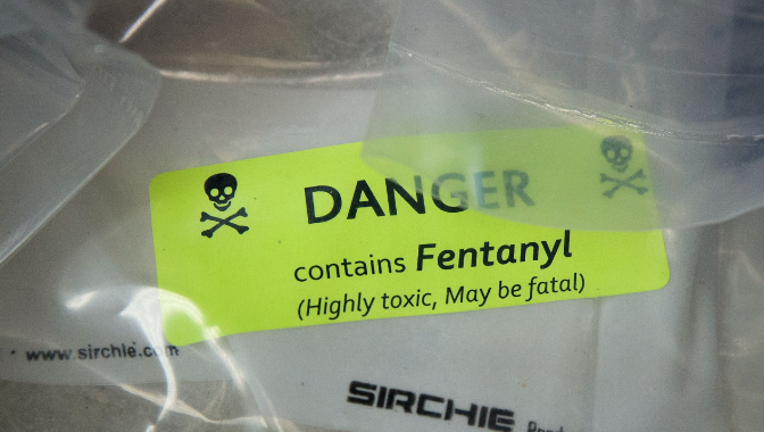SF prosecutors accuse alleged drug dealer of selling fentanyl that resulted in overdose death

SAN FRANCISCO (KTVU) - Federal prosecutors in San Francisco have accused an alleged drug dealer of selling fentanyl in the city's Tenderloin neighborhood, which ultimately led to the death of one victim and hospitalized another.
According to prosecutors, on May 18, Celina Doblado-Canaca, 38, sold fentanyl near the corner of Golden Gate Avenue and Hyde Street, and the drugs were later ingested by the two victims in San Bruno, who believed they were ingesting cocaine.
A family member then discovered both victims the next day. One died, and another was rushed to the hospital, police said.
Investigators were then able to track the drugs back to the Tenderloin and ultimately identified Doblado-Canaca as the person who sold
the drugs.
On Aug. 21, federal agents arrested Doblado-Canaca near Hyde and Turk streets. Once detained, they discovered more than a dozen small baggies containing substances believed to be fentanyl and heroin.
"Fentanyl is pouring into our community from China and Mexico. Because it is incredibly powerful in even the smallest doses, fentanyl is being mixed with other drugs and marketed as other drugs. Many drug users who die of fentanyl overdoses never even know that they have been given fentanyl. The epicenter of this fentanyl disaster is the Tenderloin neighborhood in San Francisco," U.S. Attorney David Anderson said in a statement. "I feel strongly that the Tenderloin is a wonderful neighborhood, a diverse
neighborhood, a relatively affordable neighborhood, a neighborhood of children and the elderly. However, the Tenderloin neighborhood is also home to an open-air drug market that is spreading death throughout the Bay Area. The drug dealing that is openly oppressing the Tenderloin is quietly undermining neighborhoods across San Francisco, Oakland, San Mateo, Sonoma, Marin County and elsewhere. What happens in the Tenderloin does not stay in the Tenderloin."
If convicted, Doblado-Canaca faces a maximum sentence of 20 years and a fine of $1 million for each violation.

